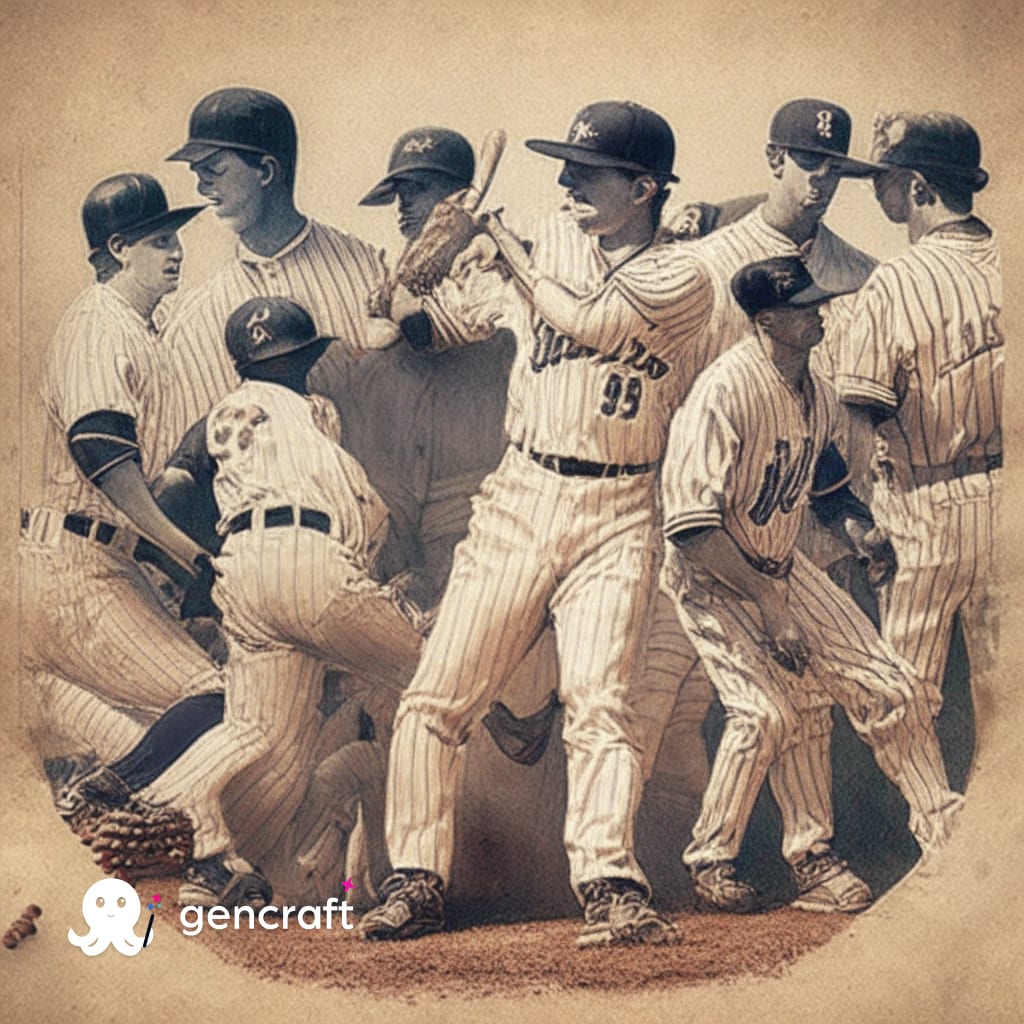THE STORY OF BASEBALL
HISTORY OF BASEBALL

Baseball is a popular sport that originated in the United States in the early 19th century. Its exact origins are not definitively known, but it is believed to have evolved from various bat-and-ball games played in England and other European countries.
The game of baseball as we know it today started to take shape in the mid-19th century. In 1845, the New York Knickerbockers Baseball Club was formed, and they developed the first set of written rules for the game. These rules established the basic elements of baseball, including the diamond-shaped infield, three-strike rule, and the concept of outs.
The game gained popularity quickly, and the first recorded organized baseball game took place in 1846 between the Knickerbockers and a team called the New York Nine. As baseball spread throughout the United States, various regional rules and variations emerged.
In the late 1850s, the National Association of Base Ball Players (NABBP) was formed as the first organized baseball league. The NABBP consisted of amateur teams and governed the sport until 1871 when the first professional baseball league, the National Association of Professional Base Ball Players (NAPBBP), was established. However, the NAPBBP lasted only five years before disbanding.
In 1876, the National League (NL) was founded as the first successful professional baseball league. It consisted of eight teams and was the precursor to today's Major League Baseball (MLB). The NL faced competition from other leagues, such as the American Association (AA), but it eventually emerged as the dominant league.
In 1901, the American League (AL) was established as a competitor to the NL. The two leagues initially operated independently, but in 1903, they reached an agreement to play a championship series known as the World Series, which has become an annual event to determine the MLB champion.
Baseball continued to grow in popularity throughout the 20th century. It faced challenges during wartime periods but remained a beloved sport. It witnessed several iconic moments, such as Babe Ruth's home run records, the breaking of the color barrier by Jackie Robinson in 1947, and the dominance of players like Joe DiMaggio, Ted Williams, Willie Mays, and Hank Aaron.
The expansion era of baseball began in the 1960s when several new teams joined the league, including the Los Angeles Angels, Houston Colt .45s (later renamed the Houston Astros), and New York Mets. The addition of these teams led to the creation of divisions within each league and the introduction of playoffs to determine the teams that would compete in the World Series.
Baseball has continued to evolve, adapting to changes in society and technology. It has embraced advancements such as night games, artificial turf, instant replay, and the use of statistical analysis known as sabermetrics. The designated hitter rule was introduced in the American League in 1973, allowing a player to bat in place of the pitcher.
Today, Major League Baseball consists of 30 teams, 15 in each league (NL and AL). It is one of the most popular sports in the United States and has a global following. The game has produced numerous legendary players, captivating moments, and has become deeply ingrained in the cultural fabric of many nations.
Baseball is considered fun by many people for several reasons:
Strategy and Skill: Baseball involves a combination of strategy, skill, and athleticism. The game requires players to make split-second decisions, such as whether to swing at a pitch, steal a base, or make a diving catch. The strategic elements, such as pitch selection and defensive positioning, add depth to the game and make it exciting for fans.
Teamwork and Collaboration: Baseball is a team sport that requires collaboration among players. Successful execution often relies on players working together, such as a pitcher and catcher coordinating pitches or infielders executing a double play. The sense of camaraderie and teamwork can be enjoyable for both players and spectators.
Individual Performances: Baseball allows individual players to shine. Pitchers can showcase their skills by throwing strikeouts or pitching a shutout, while hitters can display their power by hitting home runs or their speed by stealing bases. Fans often find joy in watching exceptional individual performances and witnessing players' unique talents.
Tradition and History: Baseball has a rich history and is deeply rooted in tradition. The game's long-standing traditions, such as singing the national anthem, the seventh-inning stretch, and the iconic baseball stadiums, contribute to the overall enjoyment and nostalgia associated with baseball.
Pace of the Game: Some people find the slower pace of baseball appealing. Unlike fast-paced sports like basketball or soccer, baseball allows for more contemplation and anticipation between each play. This slower pace can create tension and build excitement, especially during critical moments of the game.
Social Aspect: Baseball is often seen as a social activity that brings people together. Whether it's attending games with family and friends or joining a baseball league, the sport provides opportunities for socializing, bonding, and creating lasting memories.
Unpredictability: Baseball is known for its unpredictability. No lead is safe, and games can turn around dramatically in a single inning. The element of surprise keeps fans engaged and on the edge of their seats until the final out.
Fan Culture: Baseball has a dedicated fan culture with its unique traditions, chants, and rituals. Fans often develop strong connections with their favorite teams and players, creating a sense of community and belonging.
These are just a few reasons why baseball is considered fun by many. However, everyone has their own preferences, and what makes baseball enjoyable can vary from person to person.





Comments
There are no comments for this story
Be the first to respond and start the conversation.